Heat stress is a very serious situation for chickens and can quickly go from serious to deadly. Even when pulling out all the stops to keep our chickens safe in the heat, according to Gail Damerow in The Chicken Encyclopedia, “During long periods of extreme heat, hens stop laying and all chickens suffer stress. When temperatures reach 104° F (40° C) or above, chickens can’t lose excess heat fast enough to maintain a proper body temperature and may die.”
Lucy has her wings spread away from her body in an effort to allow air to circulate closer to her body.Among the many ways to combat heat stress that I covered in my blog post Beat the Heat, is supplementing their drinking water with electrolytes. I recommend keeping vitamins and electrolytes handy in a well stocked chicken first aid kit, but in an emergency, it is possible to make electrolytes with ingredients commonly found in most homes.
The mister was a bargain at less than ten dollars and keeps the surrounding area cool.
In temperatures over 90° F, keep a bucket or tub full of cool, water (not cold) near the flock at all times. If anyone begins to look overheated, panting, wings away from its sides, droopy, lethargic or pale in the wattles and comb, IMMEDIATELY submerge in the cool water up to its neck to bring its body temperature down. This simple measure can be lifesaving. Even if chickens are not in danger, this can be a welcome relief to chickens that would not voluntarily wade into water.
A dehydrated chicken may exhibit any or all of the following symptoms, which could result in death:
- panting or labored breathing
- pale comb and/or wattles
- spreading wings away from body
- diarrhea
- lethargy
- limpness
- unresponsive
- seizures,convulsions
Heat stress and dehydration deplete the body of electrolytes required for a chicken’s normal body functioning, therefore replenishing them is a priority when chickens suffer from heat stress and/or dehydration. The following instructions for making a homemade electrolyte solution can be found in The Chicken Encyclopedia.
HOMEMADE ELECTROLYTE SOLUTION
INGREDIENTS
1/2 teaspoon potassium chloride (Morton salt substitute) (If you don’t have it, omit it)
1 teaspoon sodium bicarbonate (baking soda)
1 teaspoon sodium chloride (table salt)
1 tablespoon sucrose (sugar)
1 gallon water
ADVISORY: Electrolytes should not be given to healthy chickens who are not suffering from heat stress or dehydration.
Mix up electrolytes in drinker & freeze overnight for a cold way to restore electrolyte balance in birds suffering from heat stress.
While we’re on the topic of heat advisories, it bears repeating that vinegar should NOT be added to drinking water during times of high heat. According to Dr. Mike Petrik, DVM, MSc, a poultry veterinarian, “Acidified water affects laying hens by making the calcium in her feed a little less digestible (based on chemistry….calcium is a positive ion, and dissociates better in a more alkaline environment). Professional farmers regularly add baking soda to their feed when heat stress is expected….this maintains egg shell quality when hens’ feed consumption drops due to the heat.”
In summary, during high heat conditions, baking soda facilitates calcium absorption while vinegar inhibits it. SKIP the vinegar in the heat, opting for an electrolyte solution instead.
Kathy Shea Mormino
Affectionately known internationally as The Chicken Chick®, Kathy Shea Mormino shares a fun-loving, informative style to raising backyard chickens. …Read on


shop my SPONSORS
Heat stress is a very serious situation for chickens and can quickly go from serious to deadly. Even when pulling out all the stops to keep our chickens safe in the heat, according to Gail Damerow in The Chicken Encyclopedia, “During long periods of extreme heat, hens stop laying and all chickens suffer stress. When temperatures reach 104° F (40° C) or above, chickens can’t lose excess heat fast enough to maintain a proper body temperature and may die.”
Lucy has her wings spread away from her body in an effort to allow air to circulate closer to her body.Among the many ways to combat heat stress that I covered in my blog post Beat the Heat, is supplementing their drinking water with electrolytes. I recommend keeping vitamins and electrolytes handy in a well stocked chicken first aid kit, but in an emergency, it is possible to make electrolytes with ingredients commonly found in most homes.
The mister was a bargain at less than ten dollars and keeps the surrounding area cool.
In temperatures over 90° F, keep a bucket or tub full of cool, water (not cold) near the flock at all times. If anyone begins to look overheated, panting, wings away from its sides, droopy, lethargic or pale in the wattles and comb, IMMEDIATELY submerge in the cool water up to its neck to bring its body temperature down. This simple measure can be lifesaving. Even if chickens are not in danger, this can be a welcome relief to chickens that would not voluntarily wade into water.
A dehydrated chicken may exhibit any or all of the following symptoms, which could result in death:
- panting or labored breathing
- pale comb and/or wattles
- spreading wings away from body
- diarrhea
- lethargy
- limpness
- unresponsive
- seizures,convulsions
Heat stress and dehydration deplete the body of electrolytes required for a chicken’s normal body functioning, therefore replenishing them is a priority when chickens suffer from heat stress and/or dehydration. The following instructions for making a homemade electrolyte solution can be found in The Chicken Encyclopedia.
HOMEMADE ELECTROLYTE SOLUTION
INGREDIENTS
1/2 teaspoon potassium chloride (Morton salt substitute) (If you don’t have it, omit it)
1 teaspoon sodium bicarbonate (baking soda)
1 teaspoon sodium chloride (table salt)
1 tablespoon sucrose (sugar)
1 gallon water
ADVISORY: Electrolytes should not be given to healthy chickens who are not suffering from heat stress or dehydration.
Mix up electrolytes in drinker & freeze overnight for a cold way to restore electrolyte balance in birds suffering from heat stress.
While we’re on the topic of heat advisories, it bears repeating that vinegar should NOT be added to drinking water during times of high heat. According to Dr. Mike Petrik, DVM, MSc, a poultry veterinarian, “Acidified water affects laying hens by making the calcium in her feed a little less digestible (based on chemistry….calcium is a positive ion, and dissociates better in a more alkaline environment). Professional farmers regularly add baking soda to their feed when heat stress is expected….this maintains egg shell quality when hens’ feed consumption drops due to the heat.”
In summary, during high heat conditions, baking soda facilitates calcium absorption while vinegar inhibits it. SKIP the vinegar in the heat, opting for an electrolyte solution instead.





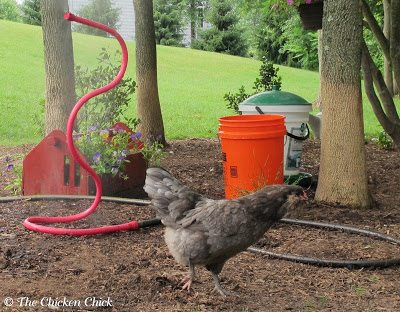
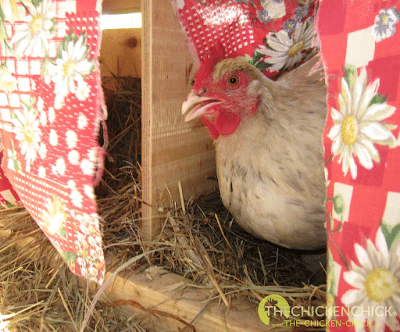
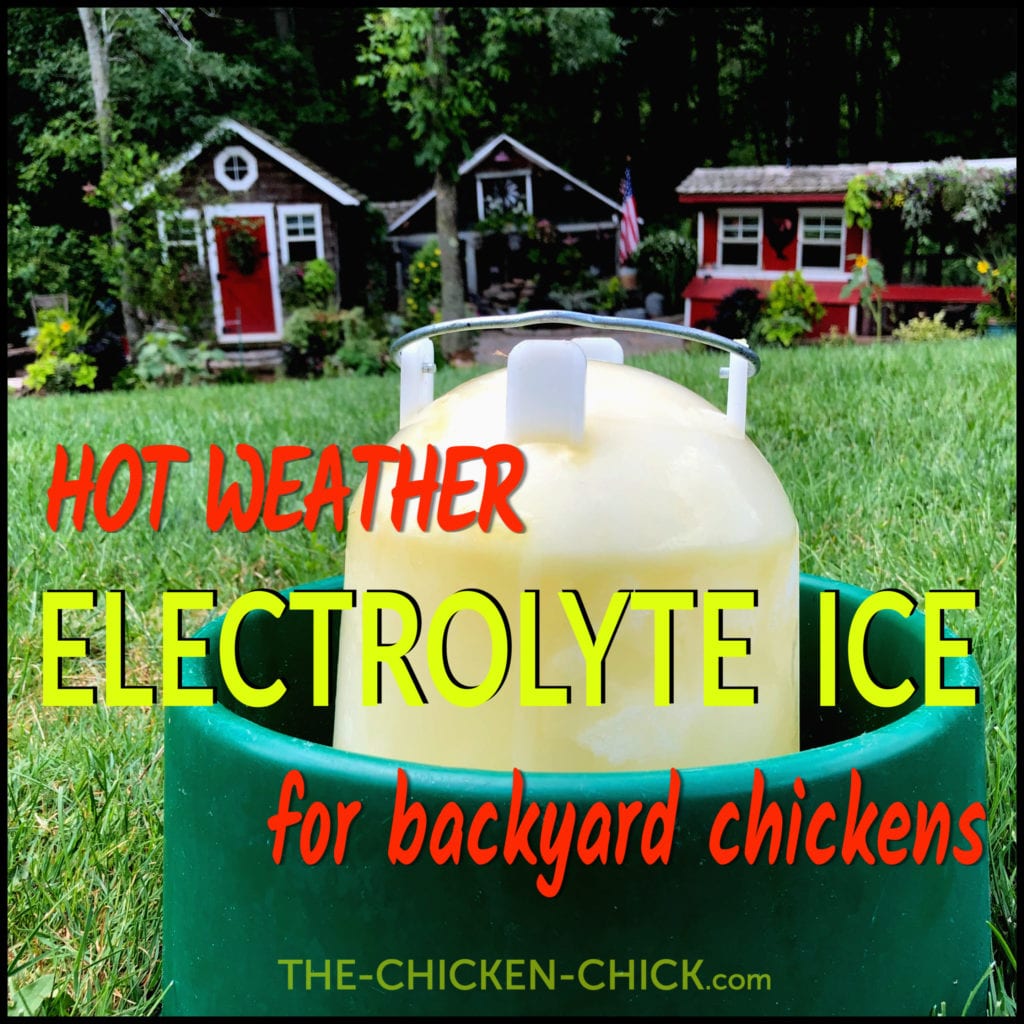
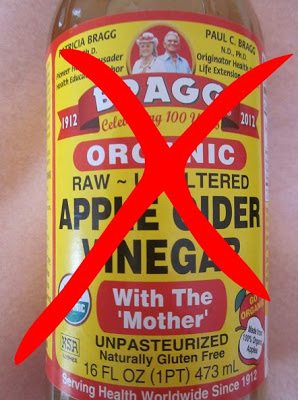
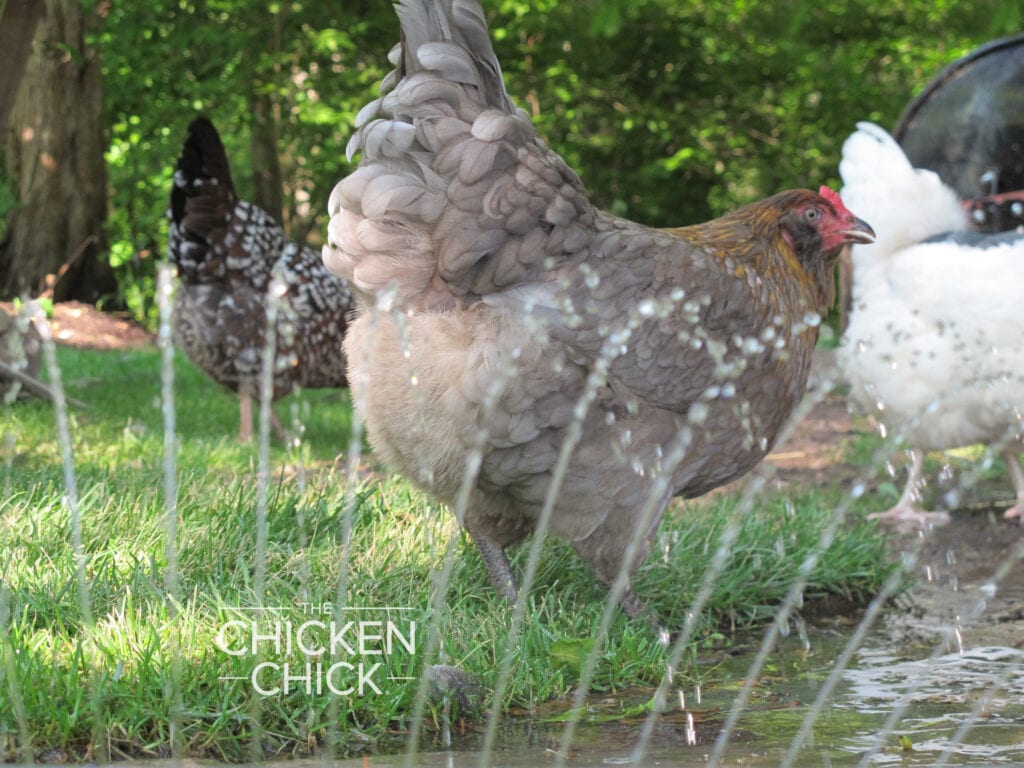





















Can you make this in recipe bulk and add 5.5 tsp of dry ingredients/gallon of water?
You don’t want to use it that frequently. Instead of bringing electrolytes back into balance, you can actually cause them to be out of balance.
How often is it safe to use for heat stress? We’ve already had days near 100* and I’ve given them electrolytes each of the last 3 afternoons. Am I causing them more harm?
Concerning the 4-6 hour time period for using the electrolytes, is it better to give in the morning as a kind of heat-stress prevention, or to wait until afternoon when they are actually hot and panting?
In the morning.
Broody hens MUST be protected from the elements. If you cannot bring them into cooler temps, let them out.
Hi, I have two broody hens, and it's going to be 40 degrees celcius tomorrow. They r both in a wire cage, Im trying to break their broodiness. Im worried that the metal will heat up quickly, and because they r broody, they will really feel the heat. What can I do to make them more comfortable until they've been broken from their broodiness?
Thanks for the info. They are happy and healthy now. Let's hope they somehow turn around and start laying again. Fingers crossed.